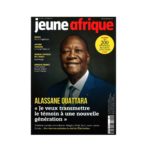ECB: A Monetary Policy Adapted to a Changing Context
On October 17, 2024, following a meeting in Ljubljana, the European Central Bank (ECB) Governing Council made a significant decision: a 25 basis point reduction in the three key interest rates. Christine Lagarde, President of the ECB, accompanied by Luis de Guindos, announced this decision, which reflects the assessment of inflation prospects and the current economic conditions in the euro area.
A Rate Adjustment to Support Disinflation
In her remarks, Christine Lagarde emphasized that the reduction in the deposit facility rate was motivated by economic indicators showing a slowdown in activity and a moderation in inflation. While inflation fell to 1.7% in September, domestic price pressures, particularly due to rising wages, remain significant. Inflation is expected to accelerate in the short term before stabilizing around the 2% target in 2025.
Despite signs of a slowdown in sectors such as industry and residential real estate, the labor market remains strong, with unemployment stable at 6.4%. Christine Lagarde highlighted that the economy should gradually recover, supported by rising real incomes and global demand, while fiscal and structural policies must focus on competitiveness and productivity to sustain growth.
The Impact of Geopolitical Risks
The Governing Council also considered growing geopolitical risks, including the war in Ukraine and tensions in the Middle East, which could impact energy prices and disrupt global trade. Additionally, the possibility of higher inflation exists if wages or profits rise more than expected. Nevertheless, the ECB remains vigilant and ready to adjust its tools to maintain price stability and ensure the proper transmission of monetary policy.
François Villeroy de Galhau: A French Perspective
François Villeroy de Galhau, Governor of the Banque de France, welcomed the unanimous ECB decision, calling it consistent with the analysis of current economic data. He noted that the drop in inflation to 1.7% in September was sharper than anticipated, reinforcing the outlook of reaching the 2% target earlier than expected in 2025.
A More Flexible Monetary Policy Ahead?
Villeroy de Galhau also addressed the issue of European growth, affirming that while the European economy is experiencing a “soft landing” without recession, a clear rebound is not yet in sight. The persistent rise in household savings and weak private investment contribute to this situation. He believes that the recent rate cut is justified and anticipates further cuts to support the economy, while maintaining a pragmatic approach based on available data.
Regarding the specific situation in France, the ECB’s monetary policy is part of a context of moderate activity. However, the French economy benefits from a strong labor market and a favorable consumption environment, provided that wage and inflation pressures are kept in check. François Villeroy de Galhau concluded by emphasizing that France, like the rest of the eurozone, must remain agile in the face of global economic uncertainty and maintain flexibility in adjusting monetary policy.
General Conclusion
The ECB Governing Council’s meeting marks an important step in adjusting the eurozone’s monetary policy, with an interest rate cut aimed at supporting disinflation while assisting an economic recovery that remains fragile. Christine Lagarde and François Villeroy de Galhau reaffirmed their commitment to act pragmatically, considering economic data and geopolitical risks that continue to affect the economy. France, like the rest of the eurozone, must remain vigilant to global economic developments and continue efforts to ensure long-term stability.

 Français
Français













